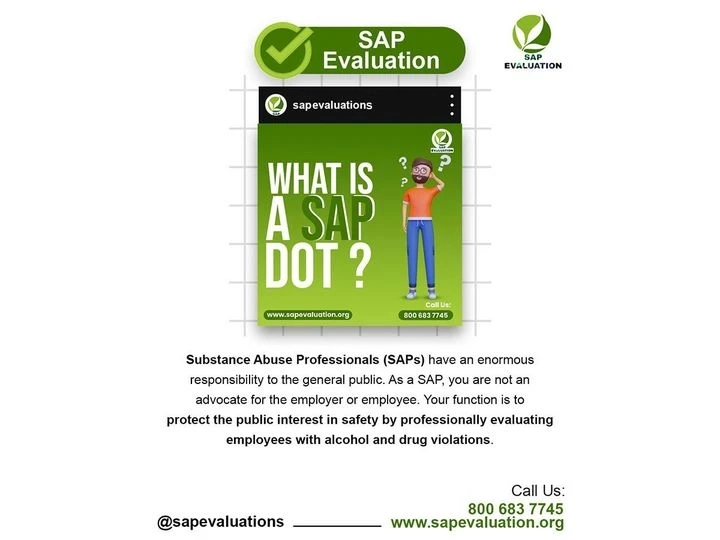What Happens After a SAP Evaluation?
Failing or refusing a DOT-required drug and/or alcohol test can be difficult not only for the employee, but also their employer. The employee is suspended from their safety-sensitive duties and the employer is short staffed. Following a failed test there is a process set up by the DOT SAP Program near me Department of Transportation that employees must complete before they can return to safety-sensitive duties. All DOTS mandated employers are required by federal law to comply. Getting started with the return-to-duty process begins with a SAP evaluation. This first step gets an employee on the road to returning to work. SAP Referral Services can help expedite this process.
The SAP Evaluation Process:
A SAP evaluation is fairly straight forward. First, the SAP (Substance Abuse Professional) conducts an assessment and creates a plan that may include education and/or treatment. Next, they send your employer a report outlining their recommendation and monitor your progress as you complete the plan. Finally, at the end of your treatment, you meet face-to-face for a follow-up SAP Evaluation at which point the SAP will determine whether you can be given clearance to submit to a return-to-duty test.
At this point, the employer must administer an observed drug test as part of the return-to-duty process. If the employee tests negative on the test the employer is then allowed to return the employee to their safety-sensitive duties. Any worker who returns to work following a DOT Return to duty drug and/or alcohol test must take follow-up tests throughout the next 12 months of their employment. Regulations require a SAP to set up at least six random tests over 12 months. However, a SAP may choose to require any number of unannounced tests over 60 months based on their suspicion of a potential violation reoccurring.
0



